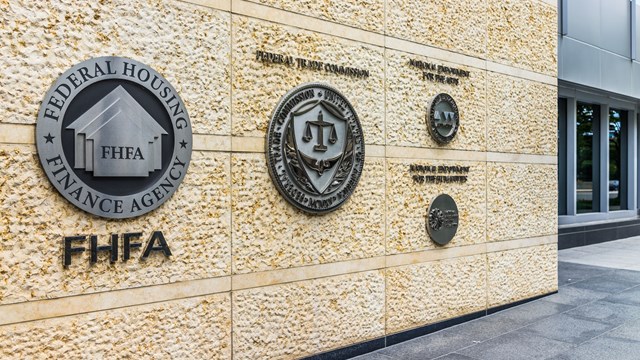While some condos and co-ops are lucky enough to have lawyers serve as members of their board, the majority of boards don’t have an in-house legal expert. They often reach out to their attorney to answer questions, vet documents and send the occasional stern letter to a contractor or recalcitrant resident.
The problem is that sometimes, boards will reach out too often, calling attorneys about things they should already know. However, lawyers know boards aren't comprised of a bunch of psychics—there can only be one Miss Cleo, after all. So, to answer boards' frequently asked questions, and to save both boards' and attorneys' phone call time, we polled some area lawyers to come up with a list of the “Top 5 Things Attorneys Wish Boards Knew.”
Who You Gonna Call?
Often times, boards make the mistake of taking legal matters or other administrative tasks into their own hands in an effort to save funds. However, this is a misstep that can lead to financial woes much greater than the cost of professional counsel.
“Take advantage of your professionals—your attorney, your accountant, your managing agent, your engineer—they're there to help,” Eric Goidel, a partner with the Manhattan law firm of Borah, Goldstein, Altschuler, Nahins & Goidel, P.C., says. “Spending a few dollars on quality services will yield dividends and insulate board members from liability claims.”
Jeffrey Reich, a partner with the New York-based law firm of Wolf Haldenstein Adler Freeman & Herz, LLP, agrees.
“Boards should seek appropriate counsel before making decisions,” Reich says. “They might want to talk to their accountant before they decide whether to refinance a loan or take a credit line. They might want to come to their lawyer when they have an issue about a purchase application, before rejecting a purchase application or accepting a purchase application for fear that they cannot reject it for a legal reason. When dealing with construction issues, they shouldn't rely on someone on the board saying, 'I heard of a problem with radiant heating so we shouldn't allow it.' They should ask the building's architect what the pluses and minuses are in respect to [radiant heating].”
What good is having proper representation if you don't take full advantage of it? While your attorney is surely an expert on all things board or community association-related, he or she is not omniscient. It's therefore vital for boards to keep counsel updated on any questions or concerns board members might have, experts stress. Doing so can prevent unnecessary litigation expenses in the long run.
A Failure to Communicate
As any couples' counselor will say, strong and steady communication is essential to a successful relationship. This sentiment applies to the board/owners relationship as well.
“Boards should be sure that they're communicating with their constituency,” Reich says. “A lot of time, there are issues because shareholders and unit owners don't know what going on. They don't know there is a situation that's being addressed or they're not aware of the some of the issues they see. For example, maybe the hallways aren't being kept as nicely as they should, but they don't realize one of the porters is on work strike. In addition, a lot of times you have folks that feel like they're just not getting heard. Maybe they want to do a very unique alteration and the board has denied it. If they're given an opportunity to sit down with the board and explain to the board with they're doing and hear the board's reasoning for why they won't allow it, it sometimes can serve to promote harmony.”
“And by sharing as much information as possible,” he continues, “the board is more likely to gain the support and trust of the owners because they will better understand the due diligence that went into making the particular decision.”
This leads to a frequently asked question: What is the best way for a board to be transparent?
Be Transparent
“If I had a nickel for every meeting I went to that I heard complaints about transparency and communication, I'd have a lot of nickels,” Adam Finkelstein, a partner with the Manhattan-based law firm of Kagan Lubic Lepper Finkelstein & Gold, LLP, says. “It's probably the No. 1 thing you can bet on hearing in a meeting. It seems that no matter what type of communication boards give, it never seems to be enough for most unit owners and shareholders.”
Finkelstein says committees are the antidote to a perceived lack of transparency. Not only do they allow non-board members to get involved, they also promote a collaborative environment, allowing everyone to feel included, and most importantly, clued in.
Condo associations should consider reserving a block of time before or after meetings to allow owners to raise issues and concerns and ask questions. Experts also recommend keeping owners updated about decisions made during board meetings and other things going on—anything from amendments being voted on to upcoming building construction—through newsletters and community bulletin boards.
Avoid Litigation At All Costs
The purpose of having proper legal representation is to ensure an association or corporation is properly maintained and protected so it will never have to go through the headaches (and legal fees) that typically result from litigation.
“Litigation is too expensive and usually a waste of money,” attorney Adam Leitman Bailey of the law firm of Adam Leitman Bailey, P.C. in Manhattan, says. “Most of the cases in my office could have been resolved if meetings were called with the unit owners or shareholders before the disagreements escalated.”
“I don't think boards appreciate how long [litigation] can take and how expensive they can be,” Reich says. “In addition, there are other ramifications of litigation that boards need to be aware of. When you are embroiled in litigation and you have prospective purchasers, they're going to review the minutes and see this and they're going to draw some conclusions, whether fair or not, about the type of building and type of board they're dealing with based on the types of litigation the board is involved in.”
Litigation also might prevent your building from receiving the services it needs, Reich explains.
“Many lenders have underwriting guidelines that will not allow them to make loans in connection to a unit in a building that is the subject to litigation,” Reich says. “If you're in a situation where you're in a building that was built in the last ten years and there's some construction defects and the board or a group of unit owners is suing the sponsor, many lenders won't make a loan in a building that is undergoing that type of litigation. Boards need to weigh all of the factors regarding litigation before determining whether to pursue litigation as an avenue of redress.”
Litigation should always be the last resort. There are several different arbitration and mediation options to pursue before settling on the decision to pursue a case, as well as preventative steps to take. For example, before finalizing a construction deal, put a note in the contract stating that both parties will engage in non-binding mediation in case of a dispute, Reich suggests.
Keep the Peace
Boards are comprised of a diverse group of people, each with their own ideas on how things should be run, so of course, disagreements are expected to occur. However, experts warn against taking things personally and letting these minor disagreements escalate into confrontations, or worse, resentment. Do otherwise and expect productivity to take a major nosedive.
“You should never undermine your board of directors/board of managers,” Goidel says. “A board is a deliberative body, so even if you are dissatisfied with the vote that's taken, you shouldn't go out to your fellow shareholders or owners and tell the world about the process. Whatever action has been taken you have to toe the mark, even if you are dissatisfied with the result.”
“Before getting into an argument with other members remember that peace at home and on the board will allow the board to conduct business in the best interest of the owners and no one ever really wins a fight,” Bailey says. “The fight you have in one meeting may cause hatred for many meetings to come. Better to hold back insults and discuss things nicely before making an enemy.”
Enjolie Esteve is an editorial assistant at The Cooperator.







Leave a Comment